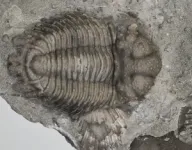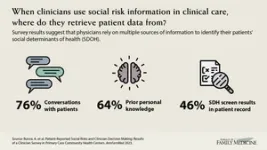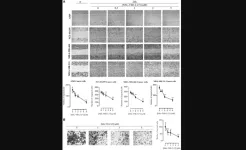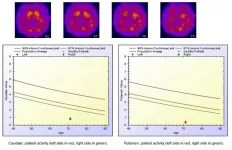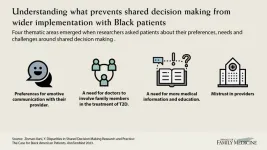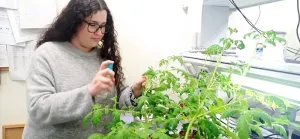LAWRENCE — When the Kinks’ Ray Davies penned the tune “Last of the Steam-Powered Trains,” the vanishing locomotives stood as nostalgic symbols of a simpler English life. But for a paleontologist at the University of Kansas, the replacement of steam-powered trains with diesel and electric engines, as well as cars and trucks, might be a model of how some species in the fossil record died out.
Bruce Lieberman, professor of ecology & evolutionary biology and senior curator of invertebrate paleontology at the KU Biodiversity Institute & Natural History Museum, sought to use steam-engine history to test the merits of “competitive exclusion,” a long-held idea in paleontology that species can drive other species to extinction through competition.
Working with former KU postdoctoral researcher Luke Strotz, now of Northwest University in Xi’an, China, Lieberman found the fossil record largely lacks the detailed data verifying competitive exclusion found in the history of steam engines: “It's really hard to actually see any evidence that competition does play a big role in evolution,” Lieberman said.
Their findings have just been published in the paper “The end of the line: competitive exclusion and the extinction of historical entities” in the peer-reviewed journal Royal Society Open Science.
“There's always been a bias to assume in the scientific community that competition is sort of the fundamental force that drives evolution and plays the biggest role on extinction,” Lieberman said. “That idea comes from a lot of different areas of research, including on the fossil record. But we, as paleontologists, have to dive down deeper into the data and analyze them.”
What would the ideal “fossil record” for steam trains look like? The researchers discovered a mother lode of data on steam engines, including their die-off, in Locobase, a steam locomotive database compiled and curated by Steve Llanso and accessible through steamlocomotive.com, a website run by Wes Barris.
“I’d always been fascinated by steam engines because they’re the technological equivalent of dinosaurs,” Lieberman said. “They're gigantic. We infer dinosaurs made a lot of noise. We know that steam locomotives made a lot of noise, but they're no longer with us.”
Lieberman and Strotz found the train database stood as an example of the sort of evidence necessary for paleontologists to conclude certain species died off due to competitive exclusion, or direct competition with other species.
“We’ve been thinking of trying to find a model from technology where we could say, ‘Aha! Here we have good evidence for competition playing the critical role,’” Lieberman said. “We’d know when certain new technologies appeared, like the mass production of the motor vehicle and the diesel locomotive. Maybe this is a case where we see what happened due to competition. Then, let's look at the fossil record and try and use this technology as an example of what we need to see if we are going to, in fact, demonstrate competition played a role in extinction.”
The relevant train history for the KU researchers begins before steam-engine trains faced competition from emergent technologies that performed the same tasks. They focused on how much tractive effort was generated by steam engines versus the newer engines that would replace them.
“You start to see these new competitive challenges to the steam locomotive — first, the electrification of engines in the 1880s, and then the development of the automobile,” Lieberman said. “It was no longer efficient for railroads to use steam locomotives to pull things. Then they start to become more specialized and can only thrive in one or just a few areas pulling heavy things and maybe moving longer distances.”
Looking at the phase-out of steam locomotion, the researchers found evidence of “an immediate, directional response to the first appearance of a direct competitor, with subsequent competitors further reducing the realized niche of steam locomotives, until extinction was the inevitable outcome.”
But the study suggests extinction can be tied directly to competition between species only under specific circumstances “when niche overlap between an incumbent and its competitors is near absolute and where the incumbent is incapable of transitioning to a new adaptive zone.”
How might this work in the natural world? Lieberman cited three examples where paleontologists believed direct competition between species triggered extinction for some of the competitors. In some cases, the idea that competitive exclusion was at play has been debunked; in other examples, evidence of competitive exclusion falls far short compared with the meticulous data available on the demise of steam engines.
“One of the classic examples involved mammals and non-flying dinosaurs, where the traditional view was, ‘Hey, the mammals were smarter and quicker and they dropped these dinosaurs to extinction,’” he said. “Now we know that it was a giant rock that fell out of the sky that caused this tremendous environmental damage, and bigger things are more likely to be susceptible to that. The second famous example involves trilobites and crustaceans, and the last example is clams and brachiopods.”
The KU researcher said data on steam locomotives might cast doubt on the notion that adaptability in a species is a hallmark of evolutionary success. Rather, the study adds to evidence that species adapting to new roles and environments do so from desperation.
“For a time when there's no competitors to steam-locomotive technology, we see them almost diversify and diffuse into no particular direction,” Lieberman said. “But when these new locomotives appear, we see a profound shift to really active natural selection and adaptation of the steam locomotive. Often, it's thought that adaptation is a good sign for a group. But what we would argue is, in fact, when things start to adapt and shift directionally — traditionally in evolution that's not a good time for a group. We'd argue it's a sign the group may be experiencing duress or pressure from other things.”
By better understanding the causes, conditions and frequency of competitive exclusion, Lieberman said it might be possible to predict what species risk extinction in the years ahead, as human-driven climate change alters and reduces habitats for the world’s species.
“We wanted not just to look at the past, but to be able to predict competition,” Lieberman said. “Can we look at specific groups that are alive today that we might be able to project out into the future and say, ‘Hey, this thing is showing signs that it's in this danger zone already.’ We can predict whether it's going to go extinct.”
END

